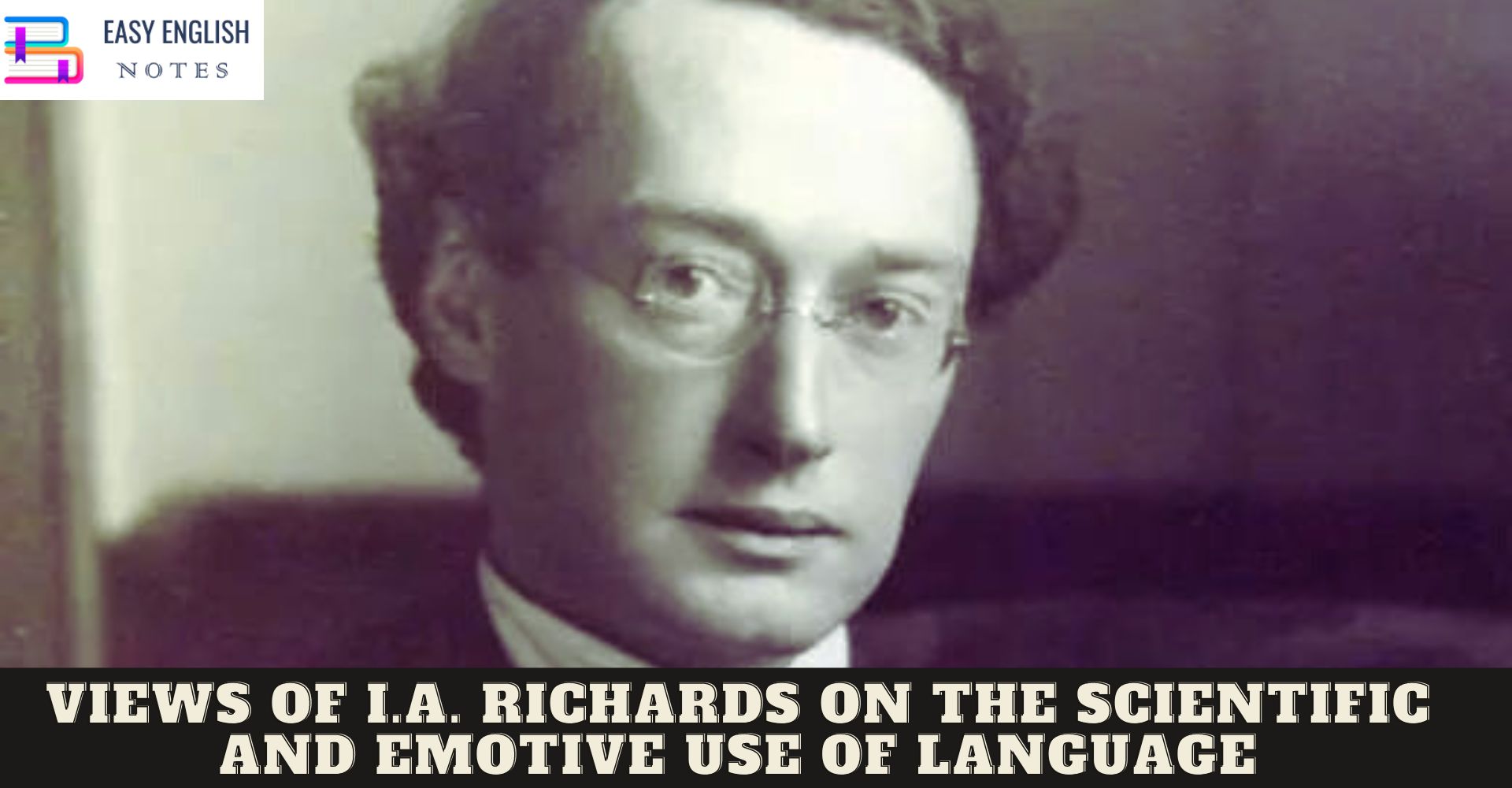I.A. Richards has been one of the most influential of modern critics. He has tried to discover what it is that poetry does that is not done by any other kind of handling of language. He uses modern science and specifically Psychology in an endeavour to analyze the precise nature of poetry and to distinguish it from scientific discourse. In his study of the nature and value of Poetry, he uses tools provided by modern psychology to investigate what actually goes on in a poem and how a poem affects the reader. He is concerned to describe accurately what a poem is and what it does. He also tries to show how and why what it does is valuable. Richards’s “Principles of Literary Criticism” appeared in 1924 as a volume in the international library of Psychology, Philosophy and scientific method. According to Richards, criticism so far has been “a few conjectures many acute isolated observations and some brilliant guesses.” This according to Richards, forms the existing critical theory. Richards believes that any inquiry into the nature of poetry without the aid of psychology will be meaningless because psychology is the indispensable instrument for such an inquiry.
In “The Definition of A Poem”. Richards touches upon the problem of the function of criticism. The critic should distinguish clearly between the communicative and the value aspects of a work of art. Richards observes: “at the least a critic is concerned with the value of things for himself and for people like him, otherwise his criticism is mere autobiography.” A normal critic should make a claim to sanity. His judgement is of general interest and value in so far as it is representative and reflects what happens in a mind of a certain kind, developed in a certain fashion. Even the services of bad critics are valuable because “we can define from their responses what other people’s responses are likely to be.” Richards distinguishes in this context between standard or normal criticism and erratic or eccentric criticism. Though as critics, Lamb and Coleridge are far from normal, yet sometimes they are of extra-ordinary fertility in suggestion. Their responses are often erratic even when of most revelatory character. We do not take them as standards to which we endeavour to approximate. But we use their critical writings as means by which to make quite different approaches to the works which they have characteristically but eccentrically interpreted. An ideal critic should be able to rise above his personal preferences. He should be capable of sitting in judgement upon his personal prejudices. He should often be in a position to say, “don’t like this but I know it is good” or “I like this and condemn it.” As an honest reader, an ideal critic should know fairly well the points at which his sensibility is distorted, at which he fails as a normal critic.
Also Read :
- Compare Hamlet with Macbeth, Othello and other Tragedies
- “The Pardoner’s Tale” is the finest tale of Chaucer
- Prologue to Canterbury Tales – (Short Ques & Ans)
- Confessional Poetry – Definition & meaning
- Line By Line Explanation Of The Poem The Eve of St. Agnes
In defining a poem, we are misled by the superstition that there is something actual. Richards cautions us that most critical discussion is primarily emotive, with no precise formulations. While talking about a poem, we may be talking about the artist’s experience. Most usually, we mean by the poem the artist’s experience of our own actual experience of the poem. Forgetting what communication is, we may mean both confusedly together This involves the personal judgement and this would imply the existence of as many poems as there are readers. To define the poem as the artist’s experience is an improvement no doubt. But since nobody but the artist has that experience, we must be more ingenious. We cannot take any single experience as the poem. We must have a class of more or less similar experiences instead. From this point of view, Wordsworth’s “Composed Upon Westminster Bridge” should mean not the actual experience which led Wordsworth to write but the class composed of all actual experiences. A literary logician with a knowledge of Psychology may usefully draw up a neat formal definition of a poem stating the permissible ranges of variation in the class composed of the actual experience of the poem.
The most convenient and the only workable way of defining a poem according to Richards is to describe it as a class of experiences. We may take this standard experience as the relevant experience of the poet when contemplating the completed composition. In case of “Kubla Khan” which Coleridge describe merely as a psychological curiosity without poetic merits, we should have to take his dream experience as our standard. Any one whose experience approximates in this degree to the standard experience will be able to judge the poem and his remarks about it will be about some experience which is included in the class. Richards deplores the backwardness of critical theory. If the definition of a poem is a matter of so much difficulty and complexity, the discussion of the principles by which poetry should be judged may be expected to be confused.
Rele Welleck is sharply critical of the psychological theory that a pome is the experience of the reader. He attempts a vigorous and searching critics of Richards definition of a poem in terms of the experience of the poet. A poem it is argued, is nothing outside the mental processes of individual readers and is thus identical with the mental state which we experience in reading or listening to a poem. The psychological theory is only very slightly improved by Richards when he defines a poem as the “experience of the right kind of reader.”
PLEASE HELP ME TO REACH 1000 SUBSCRIBER ON MY COOKING YT CHANNEL (CLICK HERE)











